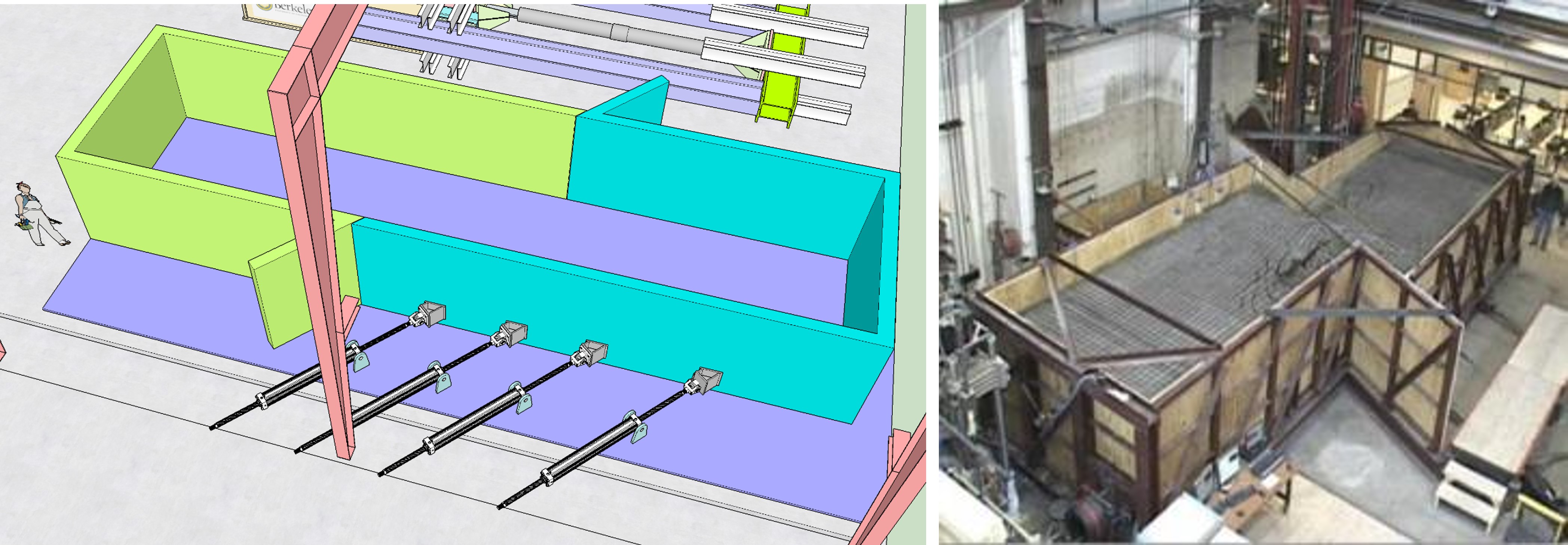Cornell University's full-scale soil-pipeline testing apparatus moved to UC Berkeley's Center for Smart Infrastructure
Feb 21, 2022

The Geosystems program and the UC Berkeley’s Center for Smart Infrastructure are excited to announce that they acquired Cornell University's soil-pipeline-fault rupture interaction testing apparatus. The apparatus was originally part of Cornell University's NEES facility and has for many years contributed immensely in gaining insights on the seismic resilience of pipelines through full-scale testing. Prof. Tom O' Rourke, Professor Emeritus, who was a leading investigator with the NEES facility, supported the Center in this transfer and will serve as Advisor of the Center for Smart Infrastructure.
The full-scale soil-pipeline-fault rupture interaction testing apparatus is capable of simulating fault rupture effects with as much as 1.8 m (70-in.) of strike-slip fault offset on pipelines as large as 600 mm (24-in.) in diameter. Currently, the apparatus was transferred at the Richmond Field Station at UC Berkeley and is being re-assembled. It will be powered by four 120-kip asymmetric actuators with a stroke of 36-in which can develop up to 150-kip force in a push direction. The actuators will be replaced with new ones that can deliver a longer stroke – up to 70-in and larger force capacity.
The apparatus will be one of several large-testing facilities of the new Center for Smart Infrastructure and will support the Center's Mission to promote next generation infrastructure resiliency and sustainability. (see https://engineering.berkeley.edu/news/2021/11/uc-berkeley-and-ebmud-announce-new-center-for-smart-infrastructure/)





